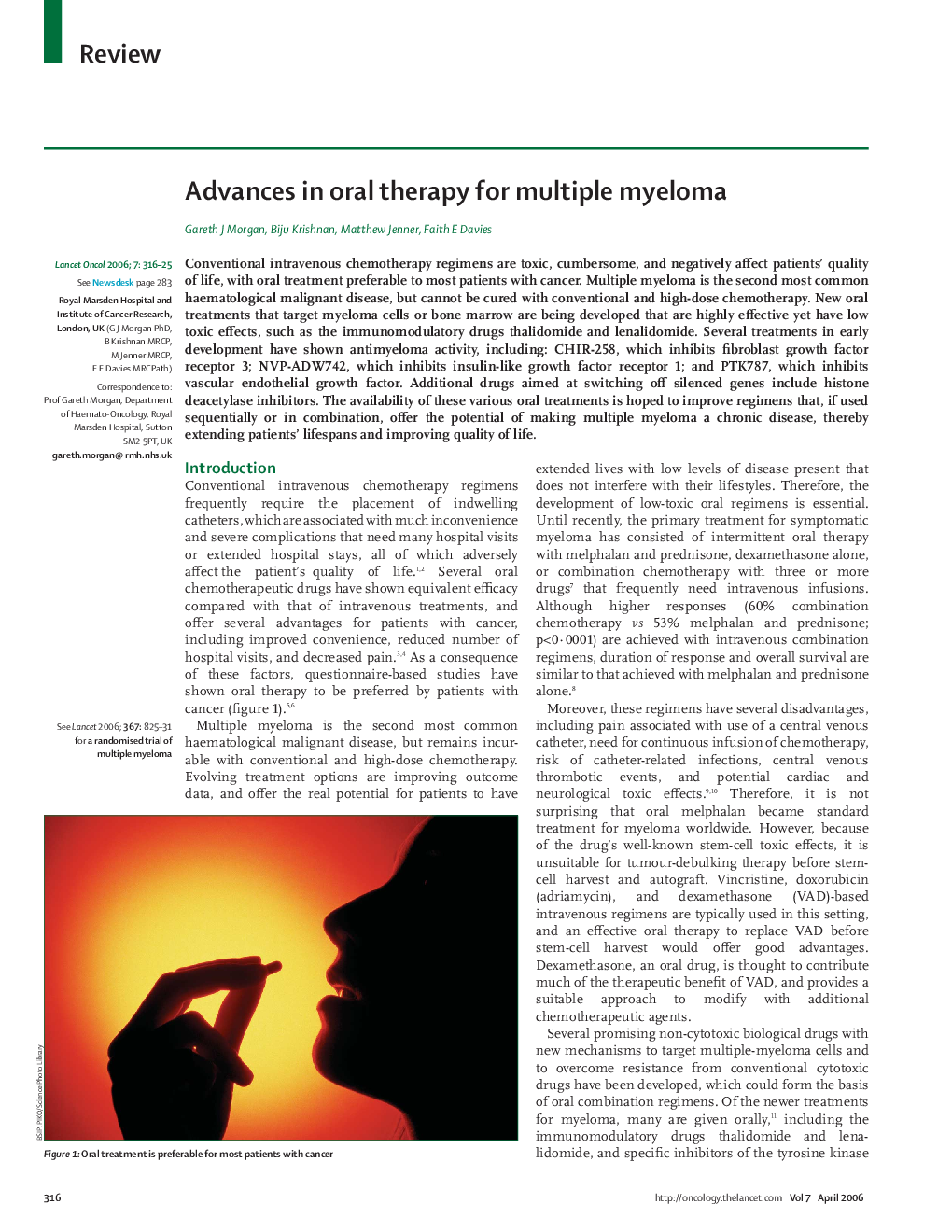| Article ID | Journal | Published Year | Pages | File Type |
|---|---|---|---|---|
| 3995924 | The Lancet Oncology | 2006 | 10 Pages |
SummaryConventional intravenous chemotherapy regimens are toxic, cumbersome, and negatively affect patients' quality of life, with oral treatment preferable to most patients with cancer. Multiple myeloma is the second most common haematological malignant disease, but cannot be cured with conventional and high-dose chemotherapy. New oral treatments that target myeloma cells or bone marrow are being developed that are highly effective yet have low toxic effects, such as the immunomodulatory drugs thalidomide and lenalidomide. Several treatments in early development have shown antimyeloma activity, including: CHIR-258, which inhibits fibroblast growth factor receptor 3; NVP-ADW742, which inhibits insulin-like growth factor receptor 1; and PTK787, which inhibits vascular endothelial growth factor. Additional drugs aimed at switching off silenced genes include histone deacetylase inhibitors. The availability of these various oral treatments is hoped to improve regimens that, if used sequentially or in combination, offer the potential of making multiple myeloma a chronic disease, thereby extending patients' lifespans and improving quality of life.
